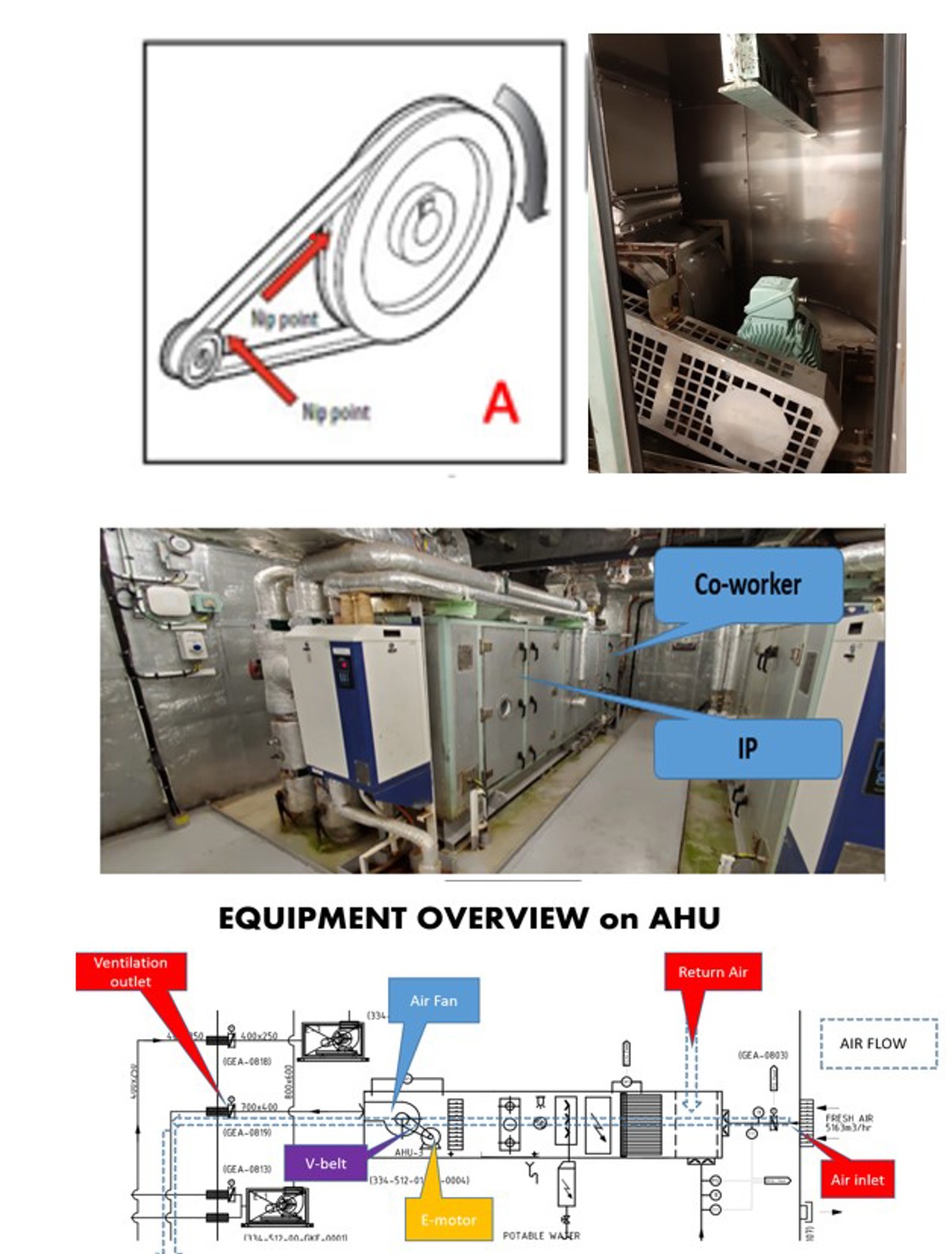Hand injury when caught in machinery
- Safety Flash
- Published on 2 February 2021
- Generated on 30 June 2025
- IMCA SF 04/21
- 2 minute read
Jump to:
During routine maintenance of an air handling unit (AHU) humidifier, a crew member sustained injuries to his hand and arm when his hand got trapped by a moving belt.
What happened?
A crew member sustained injuries to his hand and arm when his hand got trapped by a moving belt. The incident occurred during routine maintenance of an Air Handling Unit (AHU) Humidifier. The AHU was confirmed as electrically isolated and the worker visually checked that the belt was completely stopped.
The worker began the maintenance task as required, and happened to touch the belt with his right index and middle finger to check the tension. At this point an unexpected airflow within the ducting caused the air fan to rotate which caused the belt to move.
This event led to his glove getting caught by the belt which in turn caused his right hand and forearm to be pulled towards the machine and caught between the belt and pulley. The movement caused his right forearm to get caught between the metal guard and fixed structure around the belt.
He was transferred to hospital, where he received surgery for fractures to his right hand and arm, and returned home to make a full recovery.

What were the causes?
By opening the doors of the AHU humidifier an unexpected airflow was created by a vacuum from inside the AHU, that consequently rotated the air fan which then drew air from outside the AHU causing the belt to move.
This previously unrecognised hazard was found only to happen when the ventilation outlet from the AHU to the accommodation E-deck is still in the open position.
This scenario was re-enacted with several other AHUs on board and only the 2 Top-deck AHUs (#2 and #3) were found to have this unplanned event when the ventilation outlet was still in the open position.
Lessons learned - how to stop this happening again
- A review and update of procedures taking into account the previously unrecognised hazard, providing clear instructions.
- Expecting the unexpected – particularly with any kind of large rotating machines, and when there is a great deal of potential energy that can be unexpectedly released.
Members may wish to refer to the following Related Safety Flashes about events where there have been unexpected unfavourable outcomes:
Related Safety Flashes
-
IMCA SF 22/20
24 July 2020
-
-
IMCA SF 21/18
17 September 2018
-
IMCA Safety Flashes summarise key safety matters and incidents, allowing lessons to be more easily learnt for the benefit of the entire offshore industry.
The effectiveness of the IMCA Safety Flash system depends on the industry sharing information and so avoiding repeat incidents. Incidents are classified according to IOGP's Life Saving Rules.
All information is anonymised or sanitised, as appropriate, and warnings for graphic content included where possible.
IMCA makes every effort to ensure both the accuracy and reliability of the information shared, but is not be liable for any guidance and/or recommendation and/or statement herein contained.
The information contained in this document does not fulfil or replace any individual's or Member's legal, regulatory or other duties or obligations in respect of their operations. Individuals and Members remain solely responsible for the safe, lawful and proper conduct of their operations.
Share your safety incidents with IMCA online. Sign-up to receive Safety Flashes straight to your email.